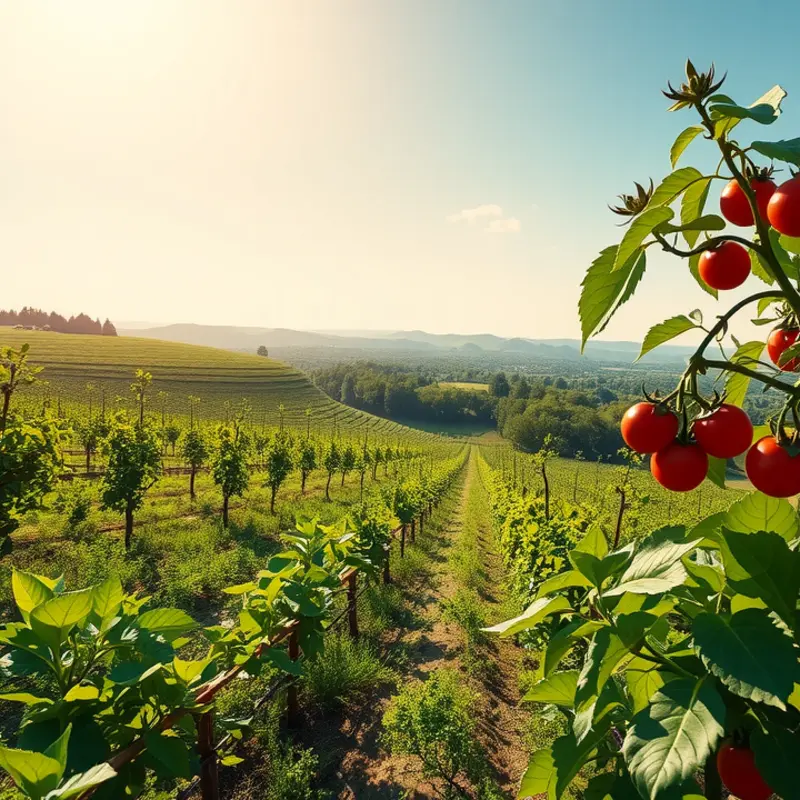Staying organized in the kitchen can feel overwhelming, especially for busy individuals and families. Luckily, with simple strategies for meal planning and ingredient organization, you can save time, reduce stress, and simplify your cooking routines. This guide provides practical tips on creating a structured meal framework, ensuring that every ingredient is easy to locate and use. Embrace these ideas to make mealtime less of a chore and more of a joyful experience.
Creating an Organized Pantry

Begin your organization journey by first addressing how your pantry is structured. An organized pantry is the cornerstone of efficient cooking, enabling quick and stress-free meal preparation. Here’s how to make your pantry a seamless powerhouse of efficiency.
Start by decluttering. Remove all items from your pantry and sort them into categories. A great way to begin is by sorting them by meal type. Place breakfast items such as cereals and oats together. Group snacks, baking essentials, canned goods, and pasta within their respective categories. This method makes it easy to locate what you need for each meal. Additionally, consider dietary needs. Keep gluten-free, vegan, or allergy-specific items in distinct sections for quick access when preparing meals that meet special dietary requirements.
Labels are an essential ally in creating an organized pantry. Use clearly marked labels on shelves and containers to eliminate guesswork. Opt for chalk labels or printed ones, based on your aesthetic preference. With labels, no ingredient goes unnoticed, and family members can easily navigate the pantry.
Transparent containers offer dual benefits of visibility and space optimization. Transfer foods like flour, sugar, and pasta from their packaging into clear containers. This step not only keeps food fresher for longer but also allows you to spot when you’re running low. It’s worth noting that investing time in containerizing can reduce the likelihood of spills and pest infestations.
Vertical space is often overlooked but can be a game-changer. Install extra shelves or use stackable bins to fully exploit the height of your pantry. Over-the-door racks can store spices, oils, or lesser-used items, freeing up premium shelf space for everyday essentials. Using vertical space effectively ensures no area is wasted, which is particularly beneficial in smaller pantries.
Regularly assess your stock to avoid expired items crowding your pantry. Make it a goal to check expiration dates monthly. Arrange foods with the nearest expiration date at the front, a practice known as the “first in, first out” system. This practice can significantly reduce food waste and ensure your pantry remains a source of fresh and safe ingredients.
Finally, periodic reassessment is key. As your dietary habits and meal preferences evolve, so should your pantry organization. Ensure your system remains dynamic and adaptable for continuous efficiency.
For further insights on reducing kitchen waste while maintaining a sustainable lifestyle, you might find interest in exploring low waste cooking and prep.
By utilizing these strategies to organize your pantry, you establish a foundation for cooking that encourages both creativity and functionality. An organized pantry truly inspires confidence, preparing you to tackle any meal with ease and enjoyment.
Streamlining Meal Prep

Integrating meal prep into your routine can greatly simplify meal times for busy individuals and families. By adopting strategic approaches such as batch cooking and pre-chopping veggies, you can save time and reduce stress. Batch cooking involves preparing larger quantities of a particular dish and storing portions for later use. For example, cooking a big pot of chili or soup can provide meals for several days, reducing daily cooking time.
Another efficient time-saver is pre-chopping vegetables. Dedicate a block of time, perhaps on Sundays, to wash, peel, and chop your weekly vegetables. Store them in airtight containers, ready to throw into any dish, from stir-fries to salads to soups. This not only saves time during busy weekdays but also eliminates the temptation to order takeout due to time constraints.
Planning meals around seasonal or on-sale ingredients can also streamline your meal prep. Seasonal produce is typically fresher and more flavorful, often available at lower prices. Consider building a flexible weekly meal plan that adapts to the best available ingredients. With this approach, not only do you enhance the taste and nutrition of your meals, but you also enjoy cost savings.
Creatively using leftovers is another effective strategy. Transform extra roasted chicken into a flavorful chicken salad or a rich stock for soup. Get inventive with leftover grains by incorporating them into stir-fries or salads. These strategies make sure nothing goes to waste while providing a diverse menu through the week. For more low-waste cooking tips, you can explore this guide on reducing kitchen waste.
A winning meal prep strategy often involves using a combination of ingredient and procedural charts or lists. List core ingredients like proteins, grains, and veggies, then align them with complementary recipes. By following such a systemized approach, you seamlessly integrate what you have on hand with your meal plans.
Over time, these meal prep habits become less of a chore and more of a routine service to yourself and your family. They not only promise time savings during frantic weeknights but also support maintaining a nutritious diet. With these streamlined strategies, you can confidently approach each week, knowing that meal prep will be both efficient and enjoyable.
Final words
Effective ingredient organization can revolutionize your cooking experience. By creating an organized pantry, incorporating smart meal-prepping strategies, and embracing a structured approach to cooking, you can significantly reduce your kitchen stress. Spend a little time upfront implementing these practices, and you’ll reclaim precious moments in your busy day. Remember, every small change adds up to greater efficiency. Take the first step today – your future self will thank you for it!







